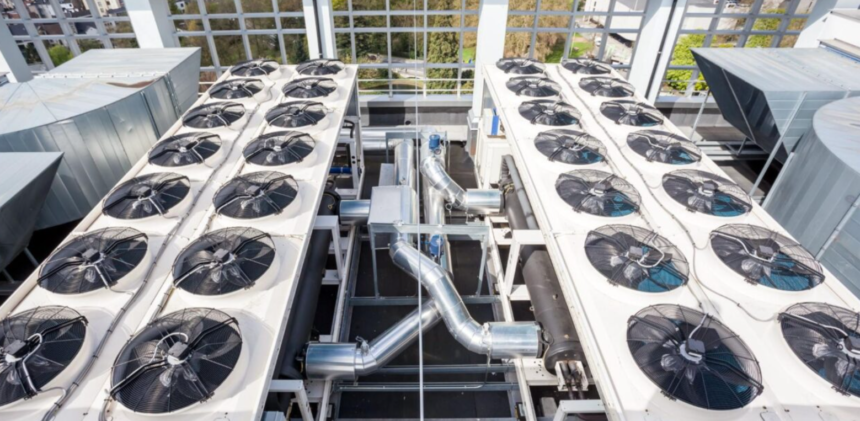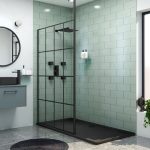Heating, Ventilation, and Air Conditioning (HVAC) systems play a crucial role in maintaining comfortable indoor environments in commercial properties. High-performance and energy efficient HVAC systems, in particular, offer numerous benefits that go beyond just temperature control. For high school students interested in learning about the impact of advanced technology on commercial buildings, this article explores the key advantages of high-performance HVAC systems.
- Improved Energy Efficiency
- Advanced Technology
- Better Insulation and Sealing
- Enhanced Indoor Air Quality
- Advanced Filtration
- Consistent Ventilation
- Increased Comfort
- Precise Temperature Control
- Humidity Control
- Cost Savings
- Lower Energy Bills
- Reduced Maintenance Costs
- Environmental Benefits
- Lower Carbon Footprint
- Support for Green Building Certifications
Improved Energy Efficiency
One of the most significant benefits of high-performance HVAC systems is their ability to improve energy efficiency. Traditional HVAC systems often consume a large amount of energy, leading to high utility bills and a larger carbon footprint. In contrast, high-performance systems are designed to optimize energy use.
Advanced Technology
High-performance HVAC systems incorporate advanced technologies such as variable speed drives, smart thermostats, and energy recovery ventilators. These technologies allow the system to adjust its output based on the current needs of the building, rather than running at full capacity all the time. This reduces energy consumption and lowers operating costs.
Better Insulation and Sealing
These systems often work in conjunction with improved insulation and sealing of the building envelope. This combination ensures that conditioned air remains inside the building, further reducing the need for the HVAC system to work harder to maintain the desired temperature.
Enhanced Indoor Air Quality
Indoor air quality is a critical aspect of any commercial property, affecting the health and productivity of occupants. High-performance HVAC systems contribute significantly to better air quality.
Advanced Filtration
These systems are equipped with advanced filtration technologies that can capture a wide range of pollutants, including dust, pollen, and even bacteria. This results in cleaner air, which is especially important in environments such as offices, schools, and healthcare facilities.
Consistent Ventilation
High-performance HVAC systems provide consistent and adequate ventilation, ensuring a steady supply of fresh air. This helps to dilute indoor pollutants and maintain healthy indoor air quality. Good ventilation is essential for preventing the buildup of harmful substances like carbon dioxide and volatile organic compounds (VOCs).
Increased Comfort
Comfort is a primary concern in any commercial property, and high-performance HVAC systems excel in providing a comfortable environment for occupants.
Precise Temperature Control
These systems offer precise temperature control, allowing for consistent indoor temperatures. This is achieved through the use of advanced sensors and controls that adjust heating and cooling based on real-time data. Occupants are less likely to experience hot or cold spots within the building, leading to a more comfortable environment.
Humidity Control
In addition to temperature control, high-performance HVAC systems also manage indoor humidity levels. Maintaining optimal humidity levels is important for both comfort and health, as it can prevent issues such as mold growth and respiratory problems.
Cost Savings
While the initial investment in a high-performance HVAC system can be higher than that of a traditional system, the long-term cost savings make it a worthwhile investment.
Lower Energy Bills
The improved energy efficiency of these systems translates into lower energy bills. Over time, the savings on utility costs can offset the initial investment, resulting in significant financial benefits for commercial property owners.
Reduced Maintenance Costs
High-performance HVAC systems are designed to be more reliable and require less maintenance compared to traditional systems. With fewer breakdowns and repairs, property owners can save on maintenance costs and reduce downtime.
Environmental Benefits
Reducing the environmental impact of buildings is a growing concern, and high-performance HVAC systems contribute positively in this regard.
Lower Carbon Footprint
By using less energy, high-performance HVAC systems help to lower the carbon footprint of a building. This is an important consideration for companies looking to enhance their sustainability practices and reduce their impact on the environment.
Support for Green Building Certifications
Installing a high-performance HVAC system can also help a building achieve green building certifications such as LEED (Leadership in Energy and Environmental Design). These certifications recognize buildings that meet high standards of energy efficiency and environmental responsibility.High-performance HVAC systems offer a range of benefits for commercial properties, from improved energy efficiency and indoor air quality to increased comfort and cost savings. As technology continues to advance, these systems are becoming more accessible and affordable, making them an excellent investment for commercial property owners. By understanding the advantages of high-performance HVAC systems, high school students can appreciate the role of technology in creating more sustainable and comfortable indoor environments.














